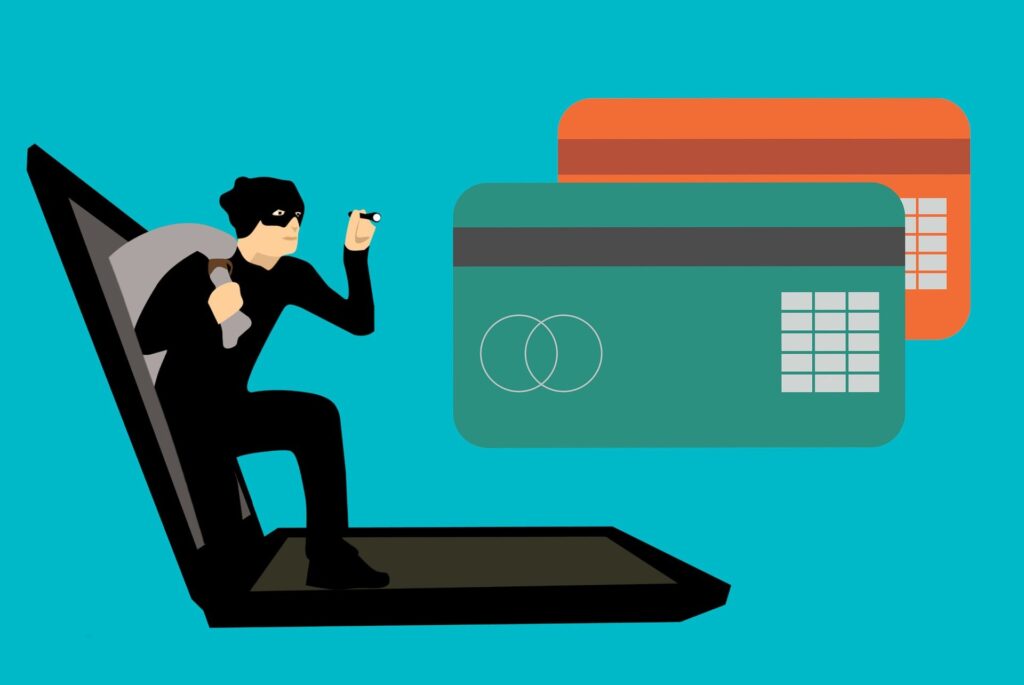Fraudulent Email Solicitation Scams in reality are very similar to phishing scams. Crooks behind this type of trap impersonate well known organizations and brands in order to trick the public into putting in their personal information. As the scammers create good clones of landing pages, many people do not suspect anything and end up losing their money and data to them.
At first glance, this issue might appear like a deadly one. However, if enough awareness is created, the threat can be minimized drastically and unless people interact with the fraud emails, scammers are pretty much powerless.
This post will help you understand the ways of detecting the hustle and the kind of things one can do to tackle it. If you are a victim, then fill out the form below and talk with our experts to know more about the recovery process.

Fraudulent Email Solicitation Scam Explained
Fraudulent Email Solicitation Scams usually embrace a narrative that is enticing. Lottery winning claims, tax rewards or free gift cards in the subject line is a big red flag and you should never take chances with them. Using gimmicky tricks the scammers encourage you to click on cloaked links and they will capture your login details.
Once the data is stored by them, they can do anything they want with it which ranges from destroying your credit to committing severe financial fraud. Regardless of the path they choose, the end person that will be exposed to financial ruin will be the victims. By now, we hope you understand the kind of threats this scam and why it is important to stay safe from it.
How to Detect Phishing?
By doing a thorough URL check on search engines, we can find the suspicious websites most of the time. Undoubtedly, scammers are creative, but the good thing is that they will always leave plenty of clues behind.
Go through the following table to understand their typical traits. If you notice anything similar, then you need to be cautious with the underlying platform. Also, do not forget to keep your device updated and perform regular backups from time to time.
- Sense of urgency – A dire warning is intended to intimidate you into doing without reflection. If you do not answer to this email within seven days, it will be permanently removed. ‘
- URL Errors – Scammers may obfuscate URLs by using links that seem to go to a legitimate website. Place your mouse pointer over suspicious links to see the URL. Sometimes, illegitimate connections employ a series of digits or odd site URLs.
- Lack of Transparency – No extra contact details are published.
- An offer that seems too good to be true – Messages about competitions you did not enter or offers for things or services at impossibly low costs are almost certainly forged.
- Inconsistencies in style – Pop-up windows masquerading as alerts from your operating system or other applications may have a different appearance or hue than legitimate ones. It is possible that purported messages from a respected company lack branding elements such as a logo.
- Grammatical errors and spelling mistakes – Some communication will include misspellings, grammar, or punctuation errors. “Any email owner who fails to update their address after seven days”
Ways of dealing with Fraudulent Email Solicitation Scam
To safeguard your interests you should pay special attention to certain things. We have covered the basic steps below. However, there is no fool proof way to deal with this issue yet.
- Do not respond with personal details to unsolicited information requests.
- Only submit sensitive information on websites that begin with “https” and display a lock symbol at the bottom of the browser.
- If you suspect phishing, you should contact the organization that sent the email to confirm that it is real.
- To avoid clicking on a link in a suspected phishing message, insert the official URL for the company’s website into your browser’s address bar.
- Use distinct, complicated passwords for each account.
- Regularly verify the correctness of personal accounts and resolve any anomalies as soon as possible.
- Avoid accessing websites with poor reputations.
Report the Scams
If you encounter a phishing scam or Fraudulent Email Solicitation Scam, then immediately call your bank and ask them to freeze all your associated accounts. Keep a strict tab on your online and banking activities.
Take help from professionals and change all of your passwords immediately. Using 2 FA is also a good thing. If you have lost funds to this type of fraud, then contact us. Our staff will help you gather key information and retrieve funds using advanced tracing tools.
Get in touch with our affiliated Cryptocurrency Forensic Specialists at CNC Intelligence for free by filling out the form below.
Conclusion
As different forms of scams constantly target the public, there isn’t much we can do about eradicating it. However, by educating people and spreading awareness, it is possible to make these events redundant.
If you have come across any Fraudulent Email Solicitation Scams, share the details below.
When you comment, your name, comment, and the timestamp will be public. We also store this data, which may be used for research or content creation in accordance with our Privacy Policy. By commenting, you consent to these terms.
